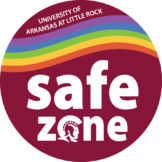The American College Health Association and CDC recommend that all first-year students living in residence halls are immunized against meningitis.
Meningitis B is one type of meningococcal disease (frequently referred to as meningitis) caused by the bacteria Neisseria meningitidis. Meningitis can attack the brain and spinal cord and cause swelling in those areas as well as a serious infection of the bloodstream, called septicemia. While bacterial meningitis is uncommon, it can strike without warning and progress quickly. College students are more likely to engage in certain common behaviors that are risk factors for getting the disease, such as sharing drinks and living in close quarters.
Approximately 10% to 15% of people infected with meningococcal disease will die, sometimes as quickly as 24 hours after symptoms appear.
For those who survive, about 1 in 5 may experience a variety of long-term disabilities including hearing loss, brain damage and nervous system problems, kidney damage, loss of limbs, and skin scarring.
There are currently two different types of vaccines for meningitis — one for groups ACWY and another for group B. You or your loved ones may have been vaccinated for meningitis ACWY when you were younger, as it’s recommended for children 11 to 12 years old (plus a booster shot at age 16). However, the meningitis B vaccine was not available until 2014, so most teenagers have not yet received the vaccine suggested for 16-23 year old’s.
Health Services offers both the MenB and ACWY vaccines. To provide maximum immunity, Men B requires a series of 2 shots (one given now and the second a month later). Two doses of the ACWY are also recommended, if a second dose has not been administered before entering college, it is recommended that incoming students receive a booster.
Signs and Symptoms of Meningitis B:
- High fever
- Severe headache
- Stiff neck
- Confusion
- Nausea
- Vomiting
- Exhaustion
- Rash
If you have any doubts about your symptoms, see a doctor. Early diagnosis and treatment is important because meningococcal disease can be deadly within 24 hours of getting sick.
Always practice good hygiene. Make sure you cough or sneeze into a tissue or your sleeve and wash your hands frequently or use hand sanitizer if soap and water are not available. Do not share drinking glasses, water bottles, eating utensils, or cosmetics or lip balm.

